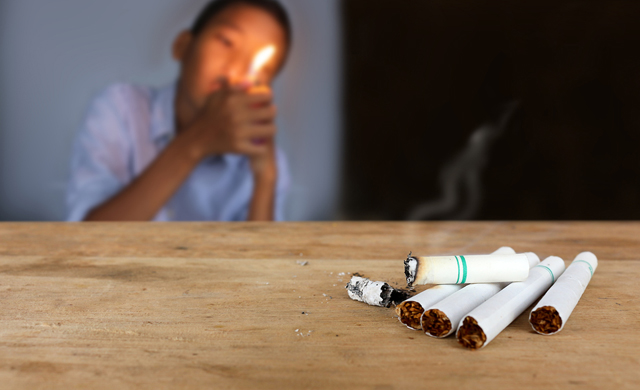
Cuban And Puerto Rican Adults Who Grow Up With Smokers Twice As Likely To Become Smokers
10/07/2015 10:00AM | 6718 viewsCuban and Puerto Rican adults who grow up in households with smokers are twice as likely to smoke during their adulthoods than non-Hispanic populations and slightly more likely than other Hispanic subgroups, according to a new report.
The Hispanic Community Health Study/Study of Latinos (HCHS/SOL) released new findings based on data derived from the largest ongoing study of the ethno-culturally diverse U.S. Hispanic population. The study was published in the journal of Preventive Medicine, and it examined the connection between childhood exposure to cigarette smoking behavior and adult smoking rates in Hispanics/Latinos.
"We know that exposure to cigarette smoking as a child is a risk factor for adult smoking because it's a learned behavior, and our study results corroborate this theory," said Dr. Elena Navas-Nacher, a researcher in the University of Illinois at Chicago's Institute for Minority Health Research and lead author on the paper.
"Childhood exposure to [household cigarette smoking behavior] nearly doubled the risk of being current cigarette smokers compared to those who were never exposed. ... Our data suggest that children who grow up in a smoking household environment are more likely to initiate smoking through observation and imitation."
Exposure to smoking during childhood and adolescents was a factor for 40 percent of participants; consequently, 20 percent of all participants currently smoke cigarettes.
According to the report, childhood exposure nearly doubled the risk of being a present-day smoker, compared those who've never been exposed to household smoke, that's in addition to sociodemographic and cultural factors (age, gender, education level, language preference and length of stay in the U.S.).
Cubans and Puerto Ricans were most likely to smoke in later life following early life exposure. They have the highest prevalence of exposure to household smoking as children (59 percent and 47 percent, respectively), and 26 percent of Cuban and 32 percent of Puerto Ricans became adult smokers, which is higher than other all other participants (20 percent).
According to Dr. Navas-Nacher, the U.S. carries stricter anti-smoking policies and lower levels of social acceptance of smoking than most Latin American nations.
Also, the U.S. has more awareness of the negative health consequences of secondhand smoke. For that reason, even after years in the U.S., Latinos were twice as likely to become smokers. Also, among all participants, men were twice as likely to be current smokers.
More than 13,000 adults (18-74) from Chicago, San Diego, Miami and the Bronx who self-identified as being of Central American, Cuban, Dominican, Mexican, Puerto Rican or having a South American background, filled out questionnaires that addressed smoking and exposure to household cigarette smoking behaviors.
Most participants (73 percent) have lived in the U.S. for 10 years or more, and a majority (76 percent) of participant indicated that they prefer to communicate in Spanish. Also, 78 percent of participants stated they were foreign-born.
"While progress has been made in reducing exposure to [household cigarette smoking behavior] and cigarette smoking in the U.S. and Latin America, these findings suggest that additional efforts are needed to reduce home [household cigarette smoking behavior] exposure in Hispanics/Latinos in this country and abroad," Dr. Navas-Nacher said.
Forthcoming research should focus attention on Hispanic and Latino attitudes regarding household smoking, and how to develop effective tobacco-control programs, according to researchers










Post your Comment
Please login or sign up to comment
Comments